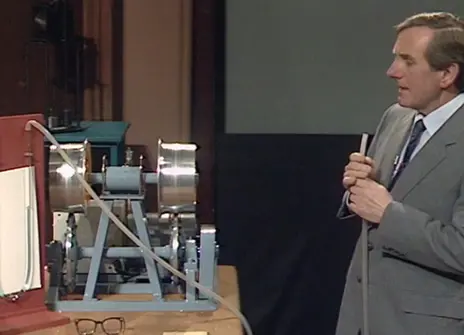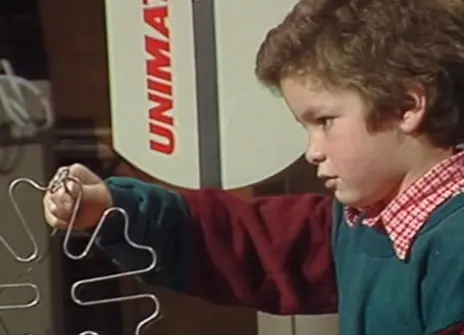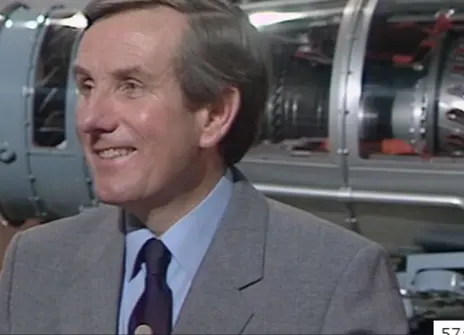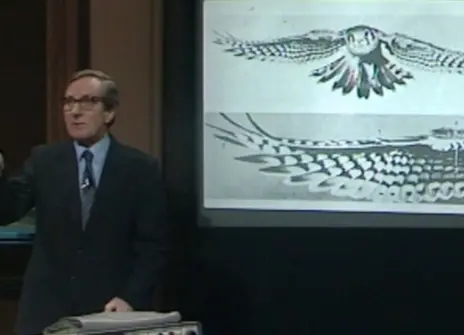Lecture 5 – Fluids and flight
From the 1983 lecture programme:
The physical factors governing the motion of real fluids, as opposed to the frictionless fluids of earlier theory, were discovered only within living memory. Since then there has been tremendous progress in the ways engineers and scientists have added to our knowledge of fluids in motion, and have made good use of that knowledge to machines. We shall look at ideas of streamlined and turbulent flows, and the remarkable differences between subsonic and supersonic aerodynamics. We shall see how air keeps aeroplanes up, and how good design can reduce their drag. We shall also see how steam drives the steam turbines that drive the generators that make electricity, and how gas-turbines propel most large aeroplanes and many ships. And we shall enquire how golfers and cricketers can make good use of aerodynamics.
About the 1983 CHRISTMAS LECTURES
From the 1983 lecture programme:
The world is full of movement it may be fast or slow, short-lived or long, simple or complicated. In the realms of nature, living creatures have developed astonishingly varied means of locomotion to propel themselves on land, in the sea and in the air. And in engineering, we have learned how to make machines, usually involving motion of one kind or another, for many useful purposes. All depend on the same physical basis of motion. Many famous men have contributed to our understanding of the subject, whether the motion is on the large scale as in the heavens, or on the small scale as in the atom; many others have developed machines that can move faster, further or more accurately; some have done both. In these lectures, we shall be looking at the ways in which our knowledge of the subject continues to grow. We shall also explore how it is being used to extend the extraordinary variety of machines created for our use and convenience. In the future as in the past, it will be the task of the engineer to discover new ways of doing things and to invent, design and make the new machines. All our experience suggests there are exciting prospects ahead that as yet we can hardly imagine.






